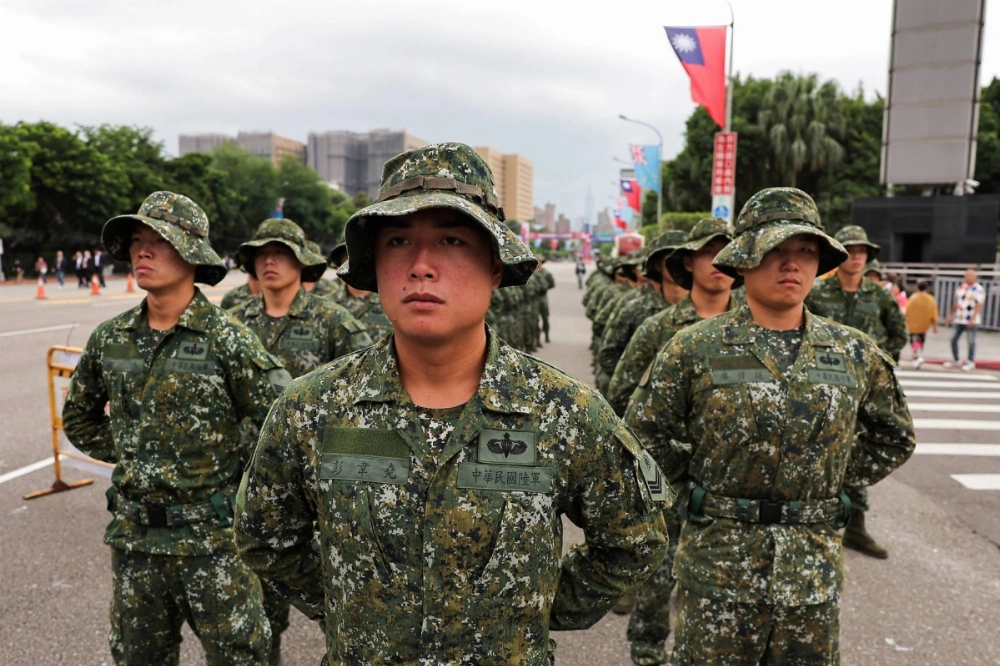It makes sense to think that Donald Trump’s trade war is increasing the risk for a Chinese invasion of Taiwan because it adds pressure on Beijing. But the self-ruled island isn’t more vulnerable because of the tariffs. It’s already under siege from the mainland on multiple fronts.
Taipei has long been a geopolitical flashpoint. It now risks losing its hard-won autonomy if it doesn’t confront these threats with greater urgency. That means strengthening military capabilities, passing a long overdue defense budget and preparing citizens for a possibly prolonged period of mainland aggression. It has already invested in missile defense systems, asymmetric weaponry and extended the conscription service. But progress on these deterrence measures has been uneven.
Some analysts have speculated whether Trump’s tariffs will accelerate China’s timeline for unification because Washington is distracted. Beijing has been ramping up military activities. It has sent a surging number of warplanes and coast guard vessels around the island. Strategists have referred to this campaign as an "anaconda strategy,” a way to strangle Taiwan militarily, economically, diplomatically and psychologically, eventually forcing unification without ever having to formally declare war.


















With your current subscription plan you can comment on stories. However, before writing your first comment, please create a display name in the Profile section of your subscriber account page.